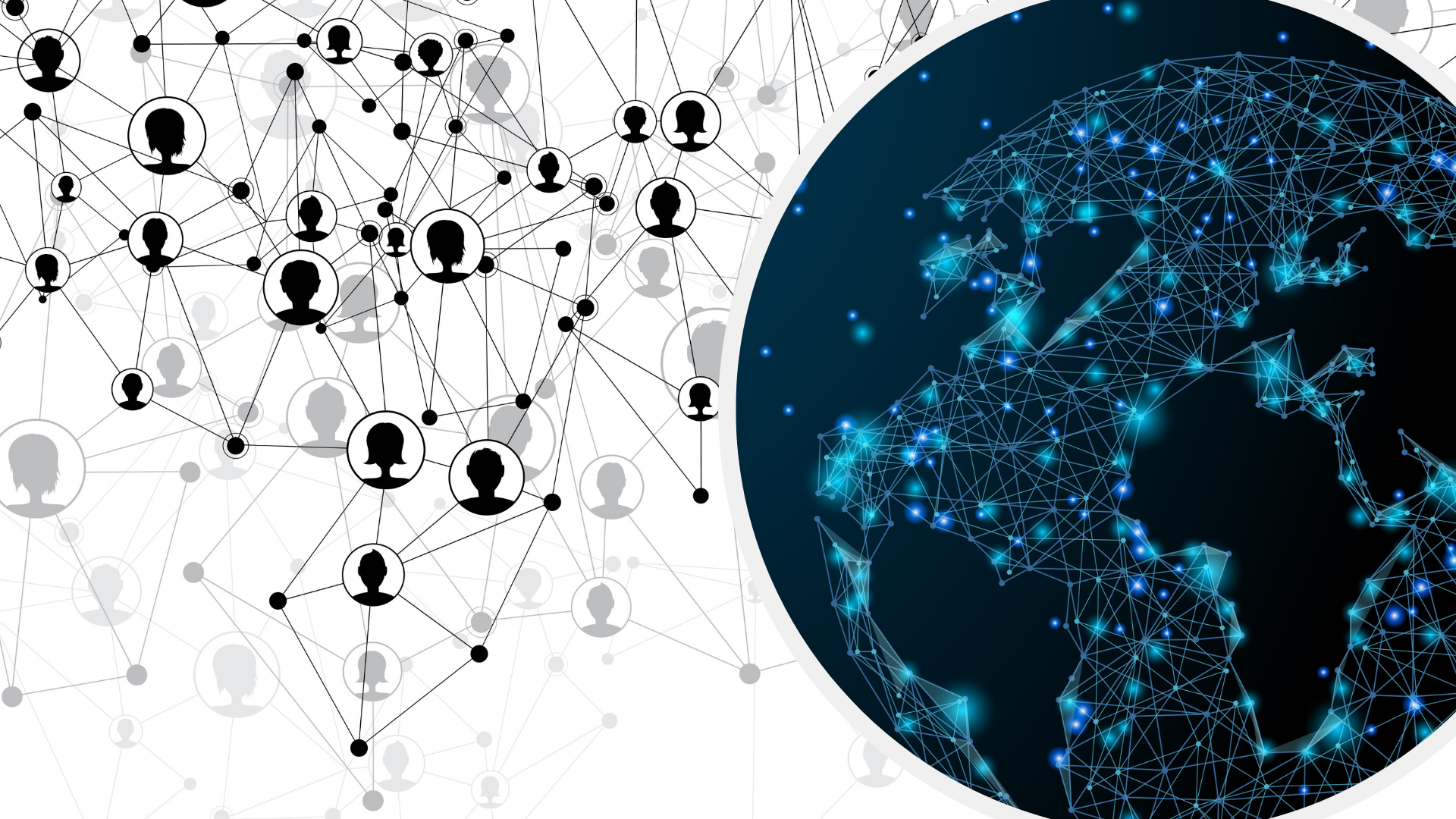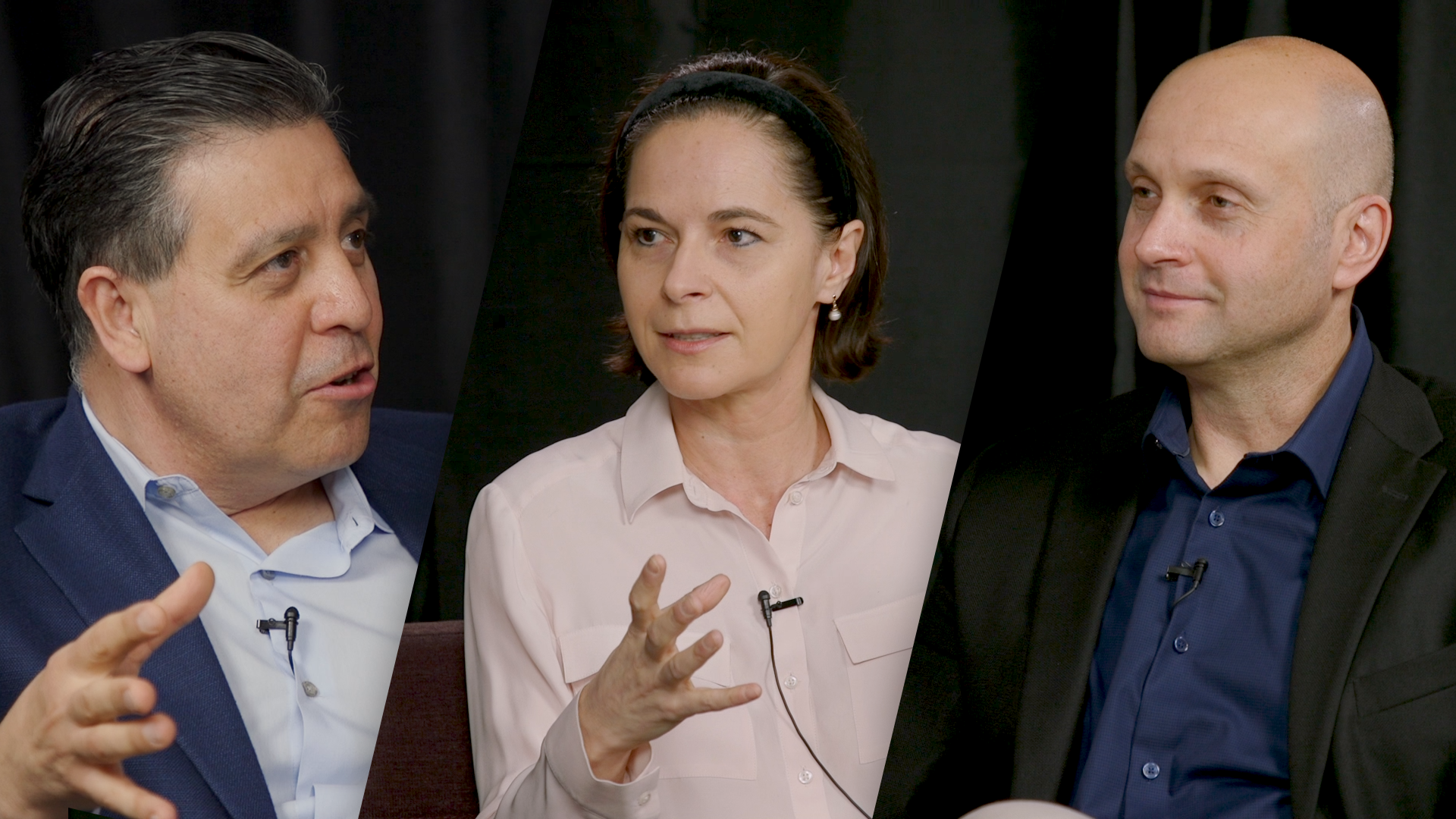Accelerating Alzheimer’s Disease Research, Diagnostics & Treatments with Collaborative Open-Access Resources
Alzheimer’s disease has proven a very tough nut to crack, and despite decades of research we are still frustratingly far from treating this tragic disease. As our population ages, Alzheimer’s disease is becoming increasingly burdensome, not only on patients and their families, but also the healthcare system as a whole. To accelerate progress towards effective treatments, and early diagnostics, the Alzheimer’s Disease Data Initiative (ADDI) was born.
The ADDI aims to facilitate the sharing of data, resources and tools amongst the global Alzheimer’s disease research community. As an open-source platform, they hope to enable collaborations and drive translational insights that will finally make an impact against this challenging disease. https://www.alzheimersdata.org/ad-workbench
Hear about the latest research and treatment advances at the eSymposia:
"Neurodegenerative Diseases: Genes Mechanisms & Therapeutics"
Mukta Phatak, PhD, Director of Data Science at ADDI, answers our questions about the organization, its goals, and vision:
The Alzheimer’s Disease Data Initiative (ADDI) is a non-profit medical research organization that was formally launched in November 2020. Our mission is to fundamentally transform Alzheimer’s disease (AD) research, accelerating progress toward new treatments and cures for Alzheimer’s disease and related dementias (ADRDs).
The three key focus area of ADDI are:
- Enabling and accelerating the data infrastructure through interoperability of existing data platforms.
- Increasing the sharing of dementia-related data from academic and industry sources.
- Empowering scientists to make new discoveries in dementia research by building an enabling environment with access to cutting-edge tools and resources.
We have created a global data platform called AD Workbench (ADWB) to share, combine and analyze different datasets that can lead to novel discoveries. ADDI strives to make as much data as possible open to as many researchers as possible. Our focus is to build a strong research community to conduct global collaborative research and promote open science.
What inspired the creation of ADDI?
In November 2017, Bill Gates announced his engagement in the Alzheimer’s space and the team identified five focus areas after talking with researchers, academics, funders and industry experts. The goal was to identify and enable effective ways to achieve substantial impact for the Alzheimer’s disease (AD) research.
These areas included:
- Gaining a better understanding of disease progression
- Detection
- Diversifying the therapeutics pipeline
- Improvements to clinical trial design and the recruitment process
- Democratizing data
To address this fifth area, which is also a backbone cutting across the first four areas, a coalition of organizations and industry representation was put together to improve the Alzheimer’s disease data ecosystem. There is a lot of research going on at a global level, but the work is often done in silos. Researchers struggle to get quick access to datasets due to lack of resources, standards, infrastructure as well as governance and motivational barriers. In the initial pilot phase, ADDI was set up to test the feasibility of creating interoperable platform to democratize data, reduce barrier to entry for the researchers and to build the community for the advancement of AD research.
How does ADDI approach Alzheimer’s disease research differently, and why is this approach needed to facilitate progress?
The focus of ADDI is to build a strong global research community by creating and growing an ecosystem that encompasses data owners, research scientists and the right technical resources all under one pane. ADDI values the original research being conducted across the world and we believe that making more data and more tools accessible to more people will lead to novel insights and solutions. As in many research fields, AD datasets tend to be siloed by data types (e.g., genomics, clinical trial data, longitudinal cohort data; imaging, etc.) and are scattered across different repositories under different technical platforms. Efforts to share data have enhanced our understanding and advanced the concept of open science, but have often equated to data copying. Such duplication of data and resources further contributes towards siloed research.
ADDI wants to facilitate data interoperability for the advancement of research in AD field. ADDI is actively working towards lowering the barriers to entry for data owners to be able to share data and for the users to obtain access to data. ADDI aids the process by creating secure workspaces, user friendly workflows and trusted data governance process. It is important to note that data owners may choose to be fully in control of who can have access to their data. ADDI offers storage and compute services where infrastructure and resources might be the limiting factor in being able to conduct research. We strongly believe that data democratization will accelerate the progress of Alzheimer’s disease research.
How can ADDI promote clinical advances in diagnostics, drug development, precision medicine, etc.?
One-size-does-not-fit-all when it comes to disease diagnostics and therapeutics. Using diverse data collaboratively is the key to achieve success in any of the research areas from precision medicine to diagnostics and drug development. Dementia has different causes as well as manifestations due to a wide range of factors that are not yet well enough understood.
To promote clinical advances at all levels, at ADDI, we have put a lot of emphasis towards creating accessibility to global and diverse sets of data. This will enable advanced AI analytics on stratified data, pooled or meta-analysis, better study designs, hypothesis generation and testing. We want to enable researchers to collect the widest range of relevant datasets across diverse populations to answer important questions such as how consistent and reliable are biomarkers and their correlation to clinical outcomes across different cohorts? Do adverse childhood events affect cognitive decline and risk of dementia? Which longitudinal biomarkers are related to specific, clinically relevant measures of progression and drug effects at specific disease stages? We believe access to tools and data is the most important step towards clinical advancement in ADRDs.
How can ADDI accelerate technology development and applications?
ADDI embraces a crowdsourcing approach promoting open science. A user from AD Workbench can utilize any tools or data processing workflows another user has published in the community Docker repository. ADDI is also building standard agnostic data harmonization service by creating a reference platform where different ontology standards will be pre-mapped.
In designing the interoperability between platforms, three different levels of data sharing are created to be flexible around the requirements of current and future data partners. Based on the data use agreements from the data contributors, data on ADWB can be centralized (stored on ADWB), distributed (remotely queried at source upon approval) and federated where record level access to data is restricted at all times, but approved results can be viewed. ADDI has developed an application for the federated data providers where users are able to send queries via secured containers. Data providers send back approved results directly into secured ADWB workspaces. This design of the federated approach to make connections to existing distributed data repositories to avoid renegotiating of all data use agreements will soon be made open-source for everyone’s use to allow researchers to make connections to do these types of analyses.
How can ADDI advance genetic, molecular and cellular insights into disease pathogenesis?
To understand AD pathogenesis, advancements in the field of diagnostics and imaging technology, better drug treatments and delivery mechanism are required. By bringing different types of data under the same umbrella and creating the ability to conduct interoperable research, hidden connections will be discovered. Understanding clinical datasets and making connections to molecular and cellular data will help create new hypotheses. Also, creating a diverse community can help identify unmet needs in the field.
What are the most promising directions in translational research and/or tools development right now?
With the decreasing cost of generating all types of molecular data, the advent of big data has promise to advance the research from algorithms and models to the clinic. Developing tools that can leverage the insights each type of data might offer and making those tools available to clinicians will be important for future Alzheimer’s disease research. To get there, we need to share the data with as many researchers as possible so that the best possible analysis tools are developed.
What resources do you offer for scientists, clinicians or physician-scientists?
ADWB consists of three units: an analytics suite, a cloud-based UI and a secured workspace that allows users to perform analyses and save their work. The analytics suite is equipped with data search and visualization tools that facilitate the user research journey from data discovery to analysis. ADDI provides secured workspaces that consist of compute and storage capabilities free of cost. Users can bring multiple datasets into workspaces or access data at the federated level depending upon data approval level and can also invite other members to join the same workspace to conduct collaborative research. A community Docker repository is built to access algorithms and tools contributed by researchers and data scientists. ADDI actively supports data harmonization and curation and quality check mechanisms on datasets across different types. ADDI is also in the process of providing storage for the raw structured and unstructured data on select datasets.
ADDI serves all types of users: those with a question, with code and/or with data. By bringing relevant datasets into ADDI platform, researchers can work on their existing hypothesis. Also, exploring disparate but newly made interoperable datasets can lead to hypothesis generation which clinicians and scientists can experimentally validate. The vision is to create a shared platform to encourage collaboration by enabling researchers to capture and share outputs and to build off enhancements made such as derived variables, synthetic data, cohort selection and harmonization etc.
Check it out here!
Related news
Continuing the Conversation: Q/A from our ePanel Event on Vector-Borne Disease
On April 9th, viewers from Brazil, Senegal, Sri Lanka, India, Nigeria, Pakistan, Serbia, Belgium,...






